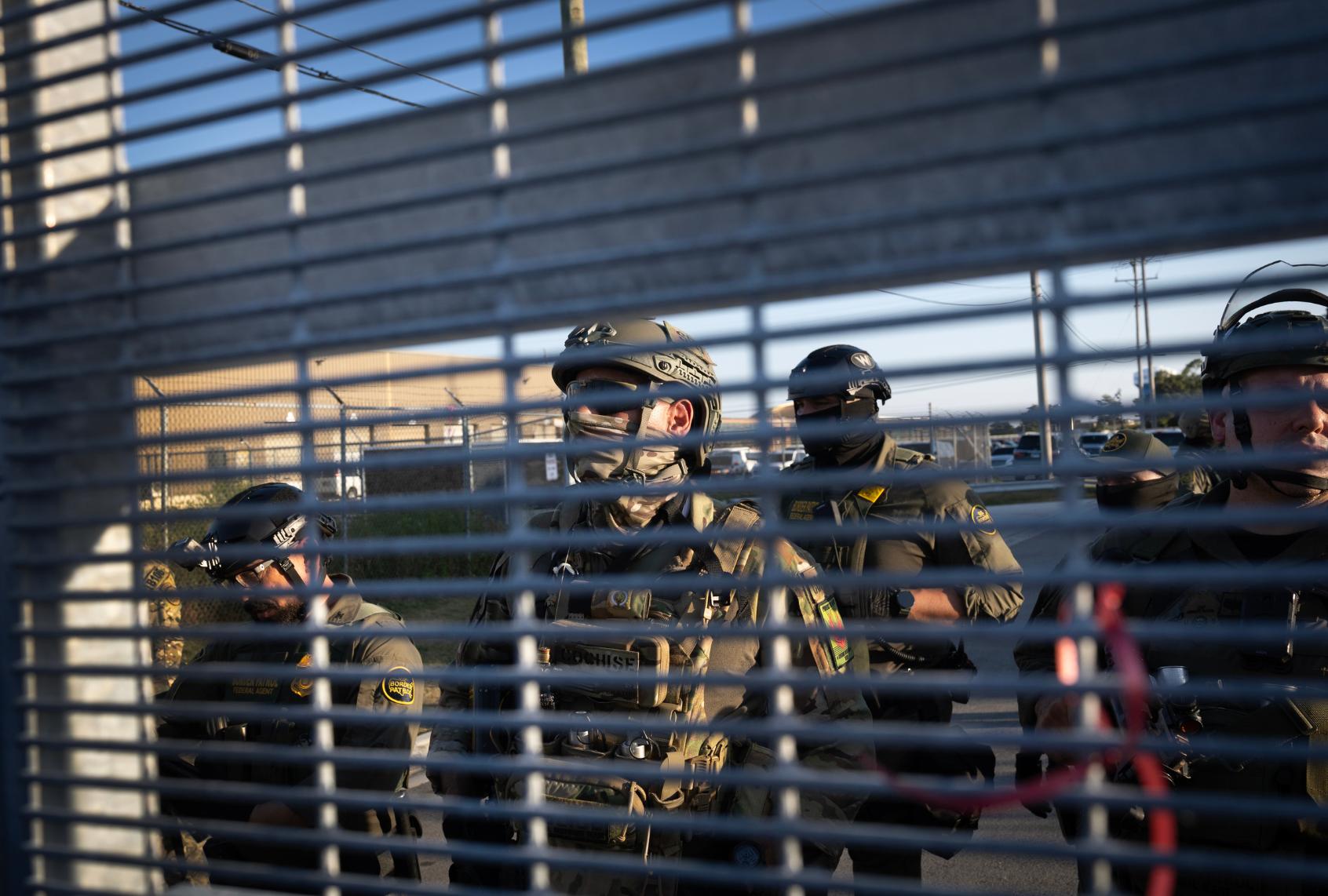After federal agents prowled the streets of Chicago as part of the Trump administration’s purported anti-crime efforts, Gov. JB Pritzker, D-Ill., is calling on everyday Illinoisans to record the enforcement actions they’re witnessing, ask agents for badge numbers and speak up for their neighbors.
“What I have been warning of is now being realized,” he said during a Monday press conference. “One thing is clear: None of what Trump is doing is making Chicago any safer.”
The Trump administration is seeking to deploy at least 100 soldiers to Illinois to crack down on alleged crime, a development that comes after the federal government unleashed dozens of federal agents on Chicago over the weekend, Pritzker said.
He is urging residents to document the actions of federal agents.
“Get your cell phones out — record what you see. Put it on social media. Peacefully ask for badge numbers and identification. Speak up for your neighbors,” the governor posted on social media. “We need to let the world know this is happening — and that we won’t stand for it.”
On Sunday, armed federal agents in masks and camouflage marched the streets, targeting street vendors and construction workers as they stopped residents and took them into custody.
The deployment of federal agents in Chicago is yet another escalation in the president’s effort to effect mass deportations, coming after weeks of threats to send troops to the city. It comes after a similar federal takeover of Washington D.C. in August and the deployment of National Guard troops to Los Angeles earlier in the summer.
“This is not about fighting crime or about public safety. This is about sowing fear and intimidation and division among Americans,” Pritzker said. “It was about creating a pretext to send armed military troops to our communities.”
Local activists have been pushing back on the Trump administration since it first launched Operation Midway Blitz, an immigration enforcement operation, earlier this month. Sunday’s action has only pushed groups to advocate harder for immigrants with and without legal status, despite further thinning their resources.
Antonio Gutierrez, strategic coordinator for Organized Communities Against Deportations Chicago, said that members of the grassroots immigrant advocacy organization are serving as responders on a hotline launched by the Illinois Coalition for Immigrant and Refugee Rights Family Support Network. They connect callers with resources and “Know Your Rights” trainings, conduct legal screenings and launch public-support campaigns for those detained by federal agents.
The hotline has been receiving between 200 and 400 calls per day from people reporting ICE raids and sightings, or detentions of loved ones — up from the one to five calls received per month in previous years, Gutierrez said.
“[Sunday], when they were doing their PR stunt, for lack of a better word, in downtown Chicago, we were getting a lot of calls,” they said, adding that the group has seen evidence of racial profiling.
We need your help to stay independent
Federal agents, empowered by a recent Supreme Court decision that effectively legalized racial profiling, have admitted as much.
Gregory Bovino, commander at large of the U.S. Border Patrol, told local news outlet WBEZ that his agents are indeed making arrests based on how people look. The admission comes some three weeks after the Supreme Court, without explanation, held that federal agents could continue stopping and arresting people based on race, language and perceived economic status.
“You know, there’s many different factors that go into something like that,” Bovino said. “It would be agent experience, intelligence that indicates there’s illegal aliens in a particular place or location.
“Then, obviously, the particular characteristics of an individual, how they look. How do they look compared to, say, you?” he added, contrasting the people agents are taking into custody with the reporter, who is a middle-aged white man.
Kathy Tholin, board chair for Indivisible Chicago Alliance, told Salon that in the face of such actions, members of the progressive group are participating in rapid response networks in their neighborhoods to document Immigration Customs Enforcement presence and support community members; contributing to mutual aid efforts to assist families torn apart by detentions; acting as community safety marshals during public events and hosting visibility days across the city to amplify their message of resistance.
“The community needs our support in a number of ways [and] we are encouraging our members to get engaged,” she said.
Start your day with essential news from Salon.
Sign up for our free morning newsletter, Crash Course.
Stacy Davis Gates, president of the Chicago Teachers Union, told Salon that members of her organization have been working to protect students at schools across the city from immigration enforcement, such as by walking them from their parents’ cars or buses to school buildings and back at the beginning and end of each day. They’re also participating in rights trainings and collaborating with other organizations to protect community members.
“What we are finding here in Chicago and in the surrounding suburbs is a level of intimidation that is unsustainable and, quite frankly, that’s scary to the children we have in our communities,” she said.
“It’s obvious that this is not about ‘illegal immigration,’” Davis Gates added. “This is about intimidation. This is about the singular hate of people who think different, of people who are different. And that’s not acceptable.”
This article has been updated to correct the name of Indivisible Chicago Alliance, which was previously identified as the Indivisible Coalition of Chicago.
Read more
about immigration under Trump


